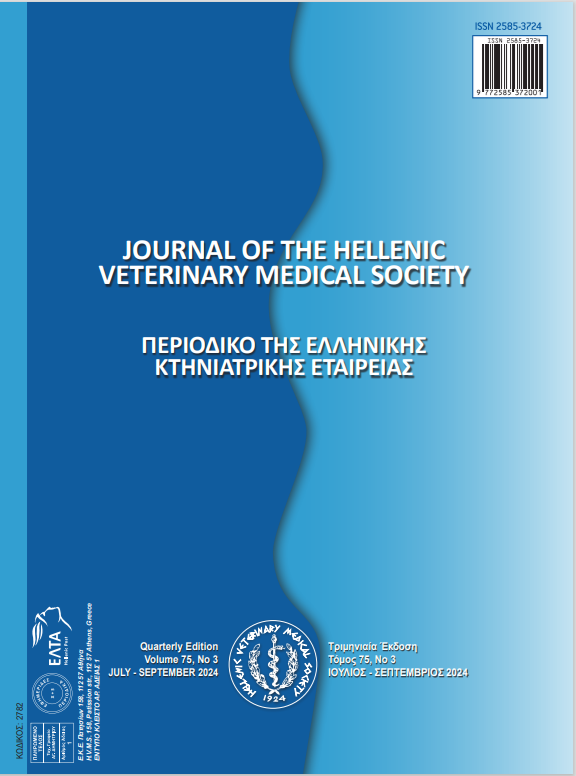Effects of exogenous progesterone on the ovine serum progesterone profile during the non-breeding season
Résumé
Exogenous progesterone (PRG) sources are used to induce ovine estrus during the non-breeding season. Intramuscular injection (IM) of PRG is an uncommon route for this purpose. This study investigated serum progesterone (P4) levels after IM administration of 50 mg of two different PRG products. Ten ewes were selected and received two consecutive PGF2α injections at 24-h intervals. Serum samples were collected (Time 0), followed by the injection of single doses of Fertigest® or Vetagesterone®. Serum P4 levels were assayed at times (T) 0, 30 min, 3,6,12,24,48,72,96, and 120 h after injection. A large variation in the serum P4 levels at T0 was detected. The serum P4 level at T0 was 4.3 ng/mL, which is considerable for anestrus ewes, following PGF2α administration. The mean time to reach maximum serum P4 concentration was 5.8 h, with a mean concentration of 22.5 ng/mL. Serum P4 levels returned to basal values (T0) after 48 h. An increased P4 production rate (PR) was detected following PRG administration, which continued for 24 h. A single injection of PRG reduced the variety of serum P4 levels from 24 h onward. The two different PRG generated different serum P4 concentrations. This study indicates an unusual change in serum P4 levels in anestrus ewes following PGF2α administration. 48 h after 50 mg PRG injection, the plasma levels of P4 reached basal levels in anestrus ewes.
Article Details
- Comment citer
-
Barati, F., Hosseini, P., & Azari, M. (2024). Effects of exogenous progesterone on the ovine serum progesterone profile during the non-breeding season. Journal of the Hellenic Veterinary Medical Society, 75(3), 7729–7734. https://doi.org/10.12681/jhvms.34759
- Numéro
- Vol. 75 No 3 (2024)
- Rubrique
- Short Communication

Ce travail est disponible sous licence Creative Commons Attribution - Pas d’Utilisation Commerciale 4.0 International.
Authors who publish with this journal agree to the following terms:
· Authors retain copyright and grant the journal right of first publication with the work simultaneously licensed under a Creative Commons Attribution Non-Commercial License that allows others to share the work with an acknowledgement of the work's authorship and initial publication in this journal.
· Authors are able to enter into separate, additional contractual arrangements for the non-exclusive distribution of the journal's published version of the work (e.g. post it to an institutional repository or publish it in a book), with an acknowledgement of its initial publication in this journal.
· Authors are permitted and encouraged to post their work online (preferably in institutional repositories or on their website) prior to and during the submission process, as it can lead to productive exchanges, as well as earlier and greater citation of published work.



